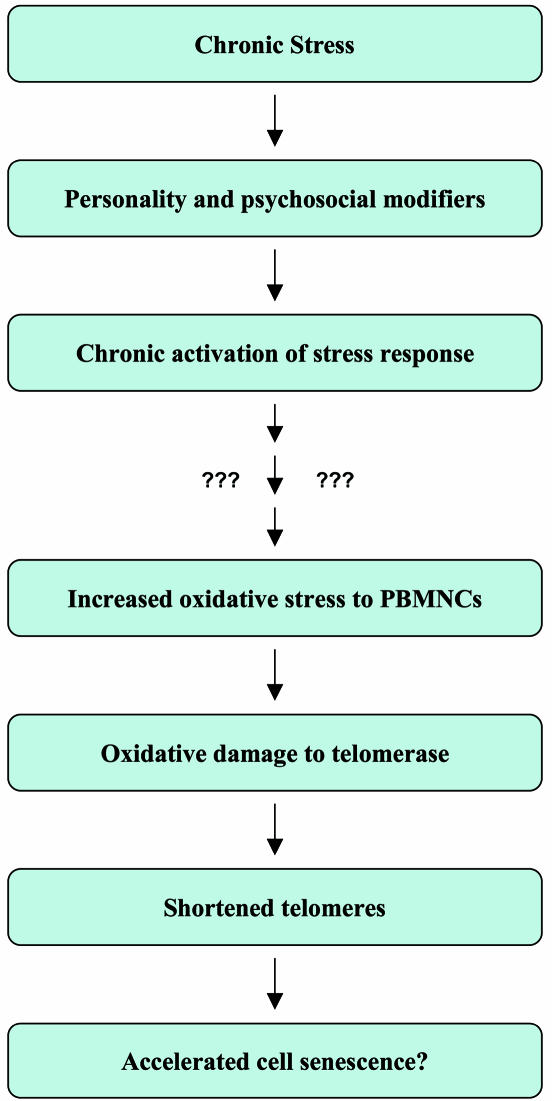Fig. 1.
A possible pathway by which chronic stress impacts telomeres. Chronic stress, in the form of caring for a chronically ill child, filtered through personality and psychosocial variables that can modulate the perception of stress, activates the stress response. Such a response, most notably, involves activation of the sympathetic nervous system and secretion of glucocorticoids, along with an array of other endocrine responses. Through a series of as yet unknown steps, this step, at the physiological level, is transduced to cellular consequences, namely increased oxidative stress to peripheral blood mononuclear cells (PBMNCs). This transduction can lead to oxidative damage to telomerase, impairing its function, thereby leading to shortened telomeres. This truncation may then translate into accelerated cell senescence.

